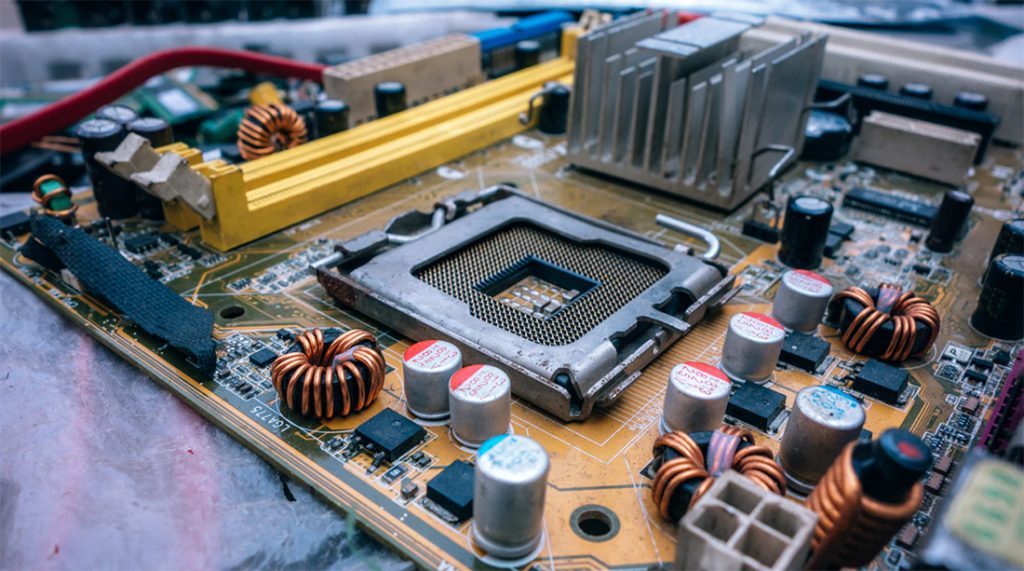Components such as the CPU play an important impact in the process of making music. This means that the more efficient it is and the better the process of making music is. But, without the right motherboard that has an audio card of high-end quality and has the correct components for your needs, your efforts to build the perfect computer to produce music is likely to be scuppered.
Let’s look at some points to consider when making a computer for audio or music production:
- It is essential to have a sturdy motherboard that has multiple functions. This is the reason we recommend an game motherboard to produce music.
- Do not overthink when buying as having the correct processor is as crucial as having the correct motherboard. Your processor should be quick and powerful!
- For RAM, you’ll require more than 16GB to accomplish this. If you plan to make use of your computer for other uses, like gaming or editing, you might want to think about something more powerful.
- Also, you will require a cooler to keep off the heat!
- For the SSD and HDD It all depends on your individual preferences. There’s no standard to follow for this.
GUIDE OF MOTHERBOARDS FOR MUSIC PRODUCTION
CPU Vs GPU
Audio processing is innately linear and typically in real-time. It requires a great deal of accuracy in computation and most of it cannot be processed in a parallel manner.
The performance limit of your CPU may cause playback issues known as buffer underruns cracks, pops and other audio-related artifacts that will not appear in the final file but will make it more difficult to adjust your production.
Digital audio workstations are quite unique for the Best Motherboards For Music Production. They focus almost exclusively on single-thread/single-core CPU performance, with extra attention paid to things like cache sizes and RAM bandwidth limitations.
The use of GPUs for audio processing is extremely rare and is usually restricted to projects that are experimental; with audio, your GPU is mainly just there to help in helping your display.
MEMORY and STORAGE
Audio files are huge they are difficult to compress and are difficult to transfer from disk. Audio takes up a significant amount of spaceboth on disk and in-RAM. the dependence upon live audio playback as well as production can mean that memory limits could cause frustrating bottlenecks.
FANS AND CASES
Computer cases in detail because there are numerous personal factors to be considered. For audio workstations however there are two important aspects to be aware of size and the noise.
MEMORY
The internet is brimming with articles with different opinions about how much RAM is required to process audio (as I stated in the previous paragraph, it’s an extremely hot topic and the recommendations they provide vary from just 8GB up to an entire 128GB.
Before we move on to our own suggestions we will look into the motivations for this recommendation.
How much RAM memory you’ll require to create digital audio will depend on the number of plug-ins and sample libraries you typically utilize.
SOCIAL CARD, MOTHERBOARD
I’m pairing motherboards with audio cards here since the major issues (outside of the normal PCIe speed and size concerns with motherboards) are in common the I/O port, EMF blocking, and latency for audio.
However, I’d like to restore a bit. Do you really require an audio card?
Although external sound card were required at the time advancements in audio processing onboard as well as the growing demand for fully-external audio interfaces have made conventional sound cards obsolete since media generalists seldom require them, and audio engineers prefer the EMF blocking, I/O accessibility, and audio quality external interfaces can provide.
Music Production Motherboard (FAQ)
Does Intel or AMD more suitable for music production?
According to a lot of musicians and enthusiasts, AMD processors are better than Intel processors with regard to price and performance. Music production is about processing power and AMD processors can provide exactly that.
What is the GHz ideal in Music Production?
For a smooth production of music You need the quad-core processor which has the clocking speeds between 2.4 up to 4.2 GHz. Of course, the higher the number of cores and the greater rate of the processor’s clocking speeds, the better it will perform, particularly when you are using VI players such as Kontakt.
Does the speed of RAM matter in the Production of Music?
RAM speed is not as important than the speed of CPU in the context of music production. So instead of equipping your computer with more RAM, put the extra cash into an efficient processor.

